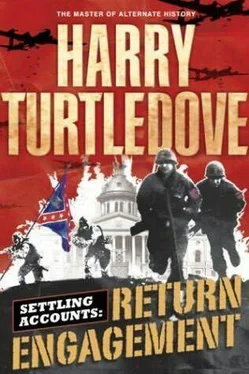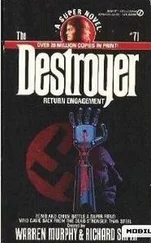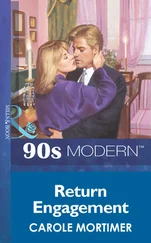Harry Turtledove - Return engagement
Здесь есть возможность читать онлайн «Harry Turtledove - Return engagement» весь текст электронной книги совершенно бесплатно (целиком полную версию без сокращений). В некоторых случаях можно слушать аудио, скачать через торрент в формате fb2 и присутствует краткое содержание. Жанр: История, на английском языке. Описание произведения, (предисловие) а так же отзывы посетителей доступны на портале библиотеки ЛибКат.
- Название:Return engagement
- Автор:
- Жанр:
- Год:неизвестен
- ISBN:нет данных
- Рейтинг книги:5 / 5. Голосов: 1
-
Избранное:Добавить в избранное
- Отзывы:
-
Ваша оценка:
- 100
- 1
- 2
- 3
- 4
- 5
Return engagement: краткое содержание, описание и аннотация
Предлагаем к чтению аннотацию, описание, краткое содержание или предисловие (зависит от того, что написал сам автор книги «Return engagement»). Если вы не нашли необходимую информацию о книге — напишите в комментариях, мы постараемся отыскать её.
Return engagement — читать онлайн бесплатно полную книгу (весь текст) целиком
Ниже представлен текст книги, разбитый по страницам. Система сохранения места последней прочитанной страницы, позволяет с удобством читать онлайн бесплатно книгу «Return engagement», без необходимости каждый раз заново искать на чём Вы остановились. Поставьте закладку, и сможете в любой момент перейти на страницу, на которой закончили чтение.
Интервал:
Закладка:
"Beats me, sir," Tompkins said. He didn't say the U.S. Army hadn't been able to stop the Confederates even when it had moved freely. Of course, he didn't need to say that, either. Headquarters for U.S. forces in Ohio wouldn't have been in a feed shop in Bucyrus if it weren't true.
The horns went on and on. The refugees had probably bumped up against the U.S. lines on the south side of town. Abstractly, Dowling could know a certain detached sympathy for them. They hadn't asked to have their lives turned upside down. Concretely, though, he just wanted to shunt them out of the way so he could get on with the business of fighting the enemy.
He wasn't thrilled about letting them through his lines, either. Sure as hell, the Confederates would have planted spies among the fugitives. They seemed to be taking espionage and sabotage a lot more seriously in this war than they had in the last one. The USA had trouble gauging how seriously they were taking it, because not all their operatives were getting caught.
He knew his own side was doing the same in the CSA. He'd commanded in Kentucky before the state fell back into Confederate hands. After U.S. forces had to pull out, he'd arranged to keep the new occupiers occupied. He only wished he would have seen more results from U.S. efforts and fewer from the Confederates'.
An auto screeched to a stop in front of the feed store. A harried-looking sergeant came in. "Sir, what are we going to do with those bastards?" he said. "They've got a lawyer out in front of 'em. He says they've got a Constitutional right to come through."
Abner Dowling did not like lawyers. He said, "Tell the guy to go to hell. Tell him Ohio's under martial law, so all his Constitutional rights are straight down the toilet. If he gives you any lip after that, tell him we'll goddamn well conscript him into a ditch-digging detail unless he shuts up. If he doesn't shut up, you do it-and if he doesn't have bloody blisters on his hands inside of two hours after that, you're in big trouble. Got it?"
"Yes, sir!" The sergeant saluted. He did a smart about-face and got out of there in a hurry. The motorcar roared away.
A few minutes later, the auto horns stopped very suddenly. Dowling grunted in an odd kind of embarrassed satisfaction. He'd done what he needed to do. That didn't make him very proud of himself. It didn't do a thing to help the poor refugees. But it did mean he could get on with the war without having those people get in his way.
He finished drafting the order for the counterattack that would now have to start without the men from the westbound troop train. That didn't make him very proud of himself, either. He knew what was likely to happen to the soldiers who did go in.
What he didn't know was what the Confederates would do to him if he failed to make that attack. He was afraid to find out. He handed the orders to Lieutenant Tompkins, who hurried off to get them encoded and transmitted. "Poor bastards," Dowling muttered, feeling very much a poor bastard himself.
During the Great War, Dr. Leonard O'Doull had never actually seen action. He'd served in a hospital well back of the lines, a hospital artillery couldn't reach. He'd met his wife in that hospital. When the retired Colonel Quigley talked him into putting on a U.S. uniform again, he'd assumed he'd be doing the same kind of thing again.
So much for assumptions. War had changed in the past generation. Treating the wounded had changed, too. The sooner they got help, the better they did. Taking them back to hospitals far behind the lines often let them bleed to death, or quietly die of shock, or come down with a wound infection that would do them in. People had known about that during the Great War. This time around, they were actually trying to do something about it.
O'Doull worked in an aid station about half a mile behind the line. The tents had red crosses prominently displayed. He didn't think the Confederates would shell them or bomb them on purpose. That didn't make him feel any better when machine-gun bullets or rifle rounds cracked past, or when artillery shells came down close by. Even before he got there, all the tents had bullet holes as well as the red crosses.
When U.S. lines moved back, the tents moved with them. And when U.S. soldiers counterattacked and regained ground, the aid station went along. The latest counterattack in eastern Ohio was aimed at Zanesville, which had fallen to the Confederates two weeks before.
Just because it was aimed at Zanesville didn't mean it would get there. Confederate dive bombers had stalled it outside of Cooperdale, twenty miles north of the target. The aid station was operating in an oak wood a few miles north of the hamlet, which the Confederates were defending as if it were Columbus.
O'Doull himself was operating on a man with a wounded leg. An X ray would have shown just where the shell fragment lay. The X-ray machine was at a field hospital five miles farther back. O'Doull was finding the sharp metal the old-fashioned way, with a probe.
He'd given the soldier a local, but it hadn't really taken hold. The man wiggled and cussed every time the probe moved. O'Doull couldn't blame him. He thought he would have done the same thing had he been on the other end of the probe. It did make his job harder, though.
"Try to hold still, Corporal," he said for about the dozenth time. "I think I'm very close to- Ah!" The probe grated on something hard.
"Shit!" the corporal said, and wiggled again. O'Doull felt like saying shit, too; the writhe had made him lose the fragment.
But he knew it couldn't be far. He found it again a minute later. He slid the probe out of the wound and slipped a long-handled forceps in instead. The noncom gave his detailed opinion of that, too. O'Doull didn't care. He felt like cheering when the jaws of the forceps closed on the fragment. "Now you have to hold still," he warned the corporal. "This will hurt, but it'll be the end of it."
"Awright, Doc." The man visibly braced himself. "Go ahead."
When O'Doull did, a torrent of horrible curses broke from the corporal's lips. He did hold still, though. O'Doull eased the shell fragment out through the man's torn flesh. When he drew it out, he found it about the size of his thumbnail. He opened the forceps. The fragment dropped with a clank into a metal basin.
"That it?" the corporal asked, staring with interest at what had laid him up. "That goddamn little thing?"
"I think so. I hope so." O'Doull dusted the wound with sulfa powder and sewed it up. After a moment's hesitation, he put a drain in it. Maybe it would heal clean-the new drugs did some wonderful things. But you never could tell.
He'd just straightened up when a yell came from outside: "Doc! Hey, Doc! We got a sucking chest!"
Now O'Doull did say, "Shit," but under his breath. "Bring him in," he called. "I'll do what I can."
He cut the soldier's tunic off him-that being the fastest way to get rid of it-to work on the wound on the right side of his chest. One of the corpsmen who'd come in with the casualty said, "Pulse is fast and weak and thready, Doc. He's losing blood in there like a son of a bitch."
One look at the wounded man's pale face would have told O'Doull that. The man was having trouble breathing, too. That blood was drowning him. O'Doull clapped an ether cone over his face. "Plasma!" he shouted. "Run it into him like it's going out of style." He might not have spoken English much over the past quarter of a century, but it came back.
All he could do was hope the wounded man was under when he started using the scalpel. If he waited, the soldier would die on him. He didn't need to be a medical genius to know that. The bullet, he saw when he got in there, had chewed up the lower lobe of the right lung. No chance to save it; he cut it out. A man could live on a lung and a half, or even on a lung. He cleared the blood from the chest cavity, stuck a big drain in the wound-no hesitation this time-and closed.
Читать дальшеИнтервал:
Закладка:
Похожие книги на «Return engagement»
Представляем Вашему вниманию похожие книги на «Return engagement» списком для выбора. Мы отобрали схожую по названию и смыслу литературу в надежде предоставить читателям больше вариантов отыскать новые, интересные, ещё непрочитанные произведения.
Обсуждение, отзывы о книге «Return engagement» и просто собственные мнения читателей. Оставьте ваши комментарии, напишите, что Вы думаете о произведении, его смысле или главных героях. Укажите что конкретно понравилось, а что нет, и почему Вы так считаете.












